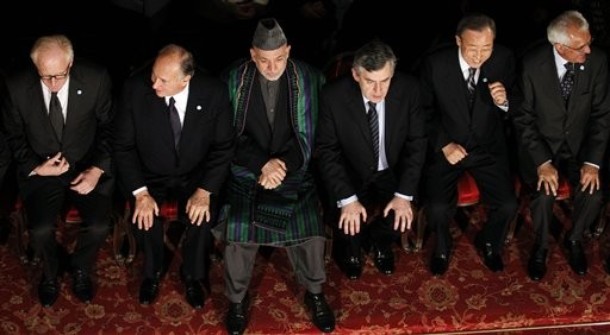Talking to the Taliban, outraging Karzai.

The arrest of Taliban Number 2 Mullah Baradar was hailed in the U.S. as a major success in the war against the Taliban. But, according to this AP story, it looks like Hamid Karzai doesn't see it that way:
The detention of Mullah Abdul Ghani Baradar â?? second in the Taliban only to one-eyed Mullah Mohammed Omar â?? has raised new questions about whether the U.S. is willing to back peace discussions with leaders who harbored the terrorists behind the Sept. 11 attacks..Karzai "was very angry" when he heard that the Pakistanis had picked up Baradar with an assist from U.S. intelligence, the adviser said. Besides the ongoing talks, he said Baradar had "given a green light" to participating in a three-day peace jirga that Karzai is hosting next month
This raises the question of whether Pakistan's increased willingness to move against the Afghan Taliban is really an effort to sandbag the Karzai government's reconciliation efforts. The report also notes that there's a divergence between the American and British position on reconciliation, with the British pushing it more aggressively.
One of the problems with nation building is that if you're disinclined to make the country a semi-permanent ward of the United States, local stakeholders are going to cut the deals they need to make to survive and those deals may work against American interests. So it really comes down to a question of whether it's better to stay in Afghanistan for a few more decades or accommodate ourselves to a less-than-ideal outcome with respect to integrating the Taliban back into the government (if they even can be, it's not a sure thing). So what's the return on investment if we stay in Afghanistan for thirty years?
(AP Photo)











